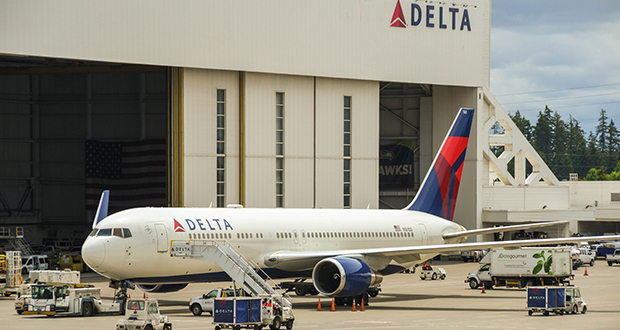
A former Delta flight attendant has lost her bid to sue the airline over an alleged sexual assault by a pilot.
The plaintiff argued that the airline was liable because the pilot was a supervisor, but a federal district court judge disagreed in granting a motion for summary judgment. The case raises the issue of what constitutes a supervisory role.
In the case of Caruso v Delta Air Lines, the judge ruled that the pilot, First Officer James Lucas, was not Sara Caruso’s supervisor. Applying a decision from the 1st U.S. Circuit Court of Appeals in Noviello v. City of Boston, the judge said, “Lucas did not serve in a supervisory role vis-à-vis Caruso within the statutory context of Title VII or Chapter 151B because he had no authority ‘over any tangible employment actions’ affecting her.”
Likewise, the plaintiff did not successfully show that the airline was negligent in its handling of the event, as Delta took prompt action to investigate, the judge said.
Caruso’s attorney has filed an appeal in the case.
Supervisory authority
In addressing Delta’s liability for the alleged assault, the judge said that employer liability depends on whether the perpetrator is a supervisor or a coworker.
The judge concluded that Lucas was not Caruso’s supervisor because he did not determine her professional advancement, work schedule, or assignments.
While Delta crew members are required to follow a captain’s orders during flights, and captains can delegate that authority to first officers, the judge described that as “some limited responsibility,” concluding it was insufficient to make someone a supervisor.
On the question of the airline’s negligence, the judge found Delta’s investigation to be reasonable. He also concluded that Caruso failed to show sufficient evidence of retaliation or disability discrimination.
 New England Biz Law Update
New England Biz Law Update
